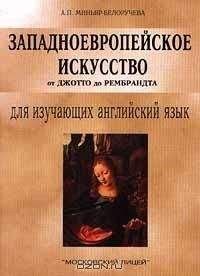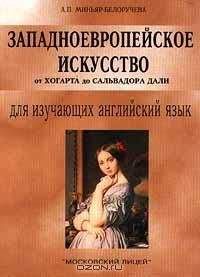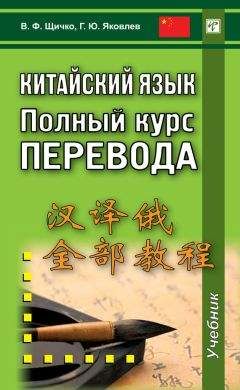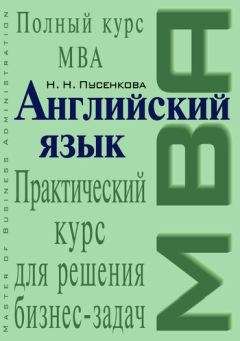Илья Франк - Английский язык с Грэмом Грином. Третий человек
Anna Schmidt stopped: she said, "Who else have you told about Koch?"
"Only you and Cooler. Why?"
"I'm frightened. It reminds me ..." She had her eyes fixed on the crowd and he never knew what memory out of her confused past had risen to warn her. "Let's go away," she implored him.
"You're crazy. We're on to something here, something big ..."
"I'll wait for you."
"But you're going to talk to him."
"Find out first what all those people ..." She said strangely for one who worked behind the footlights, "I hate crowds."
He walked slowly on alone, the snow caking on his heels. It wasn't a political meeting for no one was making a speech. He had the impression of heads turning to watch him come, as though he were somebody who was expected. When he reached the fringe of the little crowd, he knew for certain that it was the house. A man looked hard at him and said, "Are you another of them?"
"What do you mean?"
"The police."
"No. What are they doing?"
"They've been in and out all day."
"What's everybody waiting for?"
"They want to see him brought out."
"Who?"
"Herr Koch." It occurred vaguely to Martins that somebody besides himself had discovered Herr Koch's failure to give evidence, though that was hardly a police matter. He said, "What's he done?"
"Nobody knows that yet. They can't make their minds up in there—it might be suicide, you see, and it might be murder."
"Herr Koch?"
"Of course."
A small child came up to his informant and pulled at his hand, "Papa, Papa." He wore a wool cap on his head like a gnome, and his face was pinched and blue with cold.
"Yes, my dear, what is it?"
"I heard them talking through the grating, Papa."
"Oh, you cunning little one. Tell us what you heard, Hänsel?"
"I heard Frau Koch crying, Papa."
"Was that all, Hänsel?"
"No. I heard the big man talking, Papa."
"Ah, you cunning little Hänsel. Tell Papa what he said."
"He said, 'Can you tell me, Frau Koch, what the foreigner looked like?'"
"Ha, ha, you see they think it's murder. And who's to say they are wrong. Why should Herr Koch cut his own throat in the basement?"
"Papa, Papa."
"Yes, little Hänsel?"
"When I looked through the grating, I could see some blood on the coke."
"What a child you are. How could you tell it was blood? The snow leaks everywhere." The man turned to Martins and said, "The child has such an imagination. Maybe he will be a writer when he grows up."
The pinched face stared solemnly up at Martins. The child said, "Papa."
"Yes, Hänsel?"
"He's a foreigner too."
The man gave a big laugh that caused a dozen heads to turn. "Listen to him, sir, listen," he said proudly. "He thinks you did it just because you are a foreigner. As though there weren't more foreigners here these days than Viennese."
"Papa, Papa."
"Yes, Hänsel?"
"They are coming out."
A knot of police surrounded the covered stretcher (группа: «узел» полицейских окружила покрытые носилки) which they lowered carefully down the steps (которые они опустили осторожно вниз по лестнице) for fear of sliding on the trodden snow (из-за страха скольжения по утоптанному снегу; to slide — скользить; to tread — идти, ступать, шагать; топтать, наступать, давить; протаптывать /напр., дорожку/). The man said (/тот/ мужчина сказал), "They can't get an ambulance into this street because of the ruins (они не могут вызвать скорую помощь в эту улицу из-за разрушений; to get — раздобыть, получить). They have to carry it round the corner (они должны понести их /носилки/ за угол)." Frau Koch came out at the tail of the procession (фрау Кох вышла наружу в хвосте процессии): she had a shawl over her head (она имела шаль на своей голове = на голове у нее была шаль) and an old sackcloth coat (и старое пальто из мешковины; sackcloth — холст; мешковина; дерюга; sack — мешок; cloth — ткань). Her thick shape looked like a snowman (ее толстая фигура делала ее похожей на снеговика; shape — форма) as she sank in a drift at the pavement edge (когда она погрузилась в сугроб у края тротуара; to sink — погружаться, тонуть; pavement — тротуар). Someone gave her a hand (кто-то дал ей руку) and she looked round with a lost hopeless gaze (и она оглянулась вокруг потерянным, безнадежным взглядом; gaze — пристальный взгляд) at this crowd of strangers (на эту толпу незнакомцев). If there were friends there she did not recognise them looking from face to face (если были друзья там, она не узнала их, переводя взгляд от лица к лицу). Martins bent as she passed (Мартинс наклонился, когда она проходила мимо), fumbling at his shoelace (возясь со своим ботиночным шнурком; to fumble — нащупывать; мять, теребить /что-л./; вертеть в руках), but looking up from the ground (но, взглянув вверх от земли = подняв взгляд) he saw at his own eyes' level (он увидел на уровне своих собственных глаз) the scrutinising cold-blooded gnome gaze of little Hänsel (изучающий хладнокровный, гномский взгляд маленького Хензеля; to scrutinise — внимательно изучать, пристально рассматривать).
Walking back down the street towards Anna (идя назад по улице к Анне), he looked back once (он посмотрел один раз назад = оглянулся). The child was pulling at his father's hand (ребенок тянул за руку своего отца) and he could see the lips forming round those syllables (и он мог видеть, как губы складывались вокруг этих слогов) like the refrain of a grim ballad (как рефрен мрачной баллады), "Papa, Papa."
He said to Anna: "Koch has been murdered (Кох был убит). Come away from here (пойдем прочь отсюда)." He walked as rapidly as the snow would let him (он зашагал так быстро, как снег мог позволить ему), turning this corner and that (поворачивая за этот угол и за тот = заворачивая за углы). The child's suspicion and alertness seemed to spread like a cloud over the city (подозрение и бдительность ребенка кажется, распространялись, как туча над городом; alert — бдительный, внимательный, настороженный)—they could not walk fast enough to evade its shadow (они не могли идти достаточно быстро, чтобы избежать ее тени). He paid no attention (он не обратил внимания) when Anna said to him (когда Анна сказала ему), "Then what Koch said was true (тогда то, что сказал Кох, было правдой). There was a third man (третий человек был)," nor a little later when she said (и /также не обратил внимания/ немного позже, когда она сказала), "It must have been murder (это должно было быть убийство = должно быть, это было убийство). You don't kill a man to hide anything less (ты не убиваешь = не убивают человека, чтобы спрятать что-либо поменьше)."
The tram cars flashed like icicles at the end of the street (трамвайные вагоны сверкали, как сосульки, в конце улицы): they were back at the Ring (они были назад = вернулись на Кольцо). Martins said, "You had better go home alone (вы бы лучше пошли домой одни). I'll keep away from you awhile till things have sorted out (я буду держаться от вас подальше: «прочь от вас» некоторое время, пока вещи не образуются; to sort out — уладить/ся/)."
"But nobody can suspect you (но никто не может подозревать вас)."
"They are asking about the foreigner (они спрашивают об иностранце) who called on Koch yesterday (который приходил к Коху вчера). There may be some unpleasantness for a while (может быть какая-нибудь неприятность на некоторое время)."
"Why don't you go to the police (почему вы не пойдете в полицию)?"
"They are so stupid (они такие глупые). I don't trust them (я не доверяю им). See what they've pinned on Harry (смотрите, что они повесили на Гарри). And then I tried to hit this man Callaghan (и потом, я пытался ударить этого парня Каллахана). They’ll have it in for me (они мне это припомнят; to have it in for smb. = to intend to do harm to smb. — намереваться сделать кому-л. что-л. плохое). The least they'll do (самое меньшее, что они сделают) is send me away from Vienna (это вышлют меня прочь из Вены). But if I stay quiet (но если я останусь тихим = буду вести себя тихо)... there's only one person who can give me away (есть только один человек, который может меня сдать). Cooler."
"And he won't want to (и он не захочет)."
"Not if he's guilty (не захочет, если он виноват). But then I can't believe he's guilty (но опять-таки: «тогда» я не могу поверить, что он виновен; guilt — вина)."
shoelace [`ʃu:leıs], unpleasantness [Λn`plezntnıs], alertness [ə`lə:tnıs]
surround [sq'raund], ambulance ['xmbjulqns], procession [prq'seS(q)n], syllable ['sIlqbl], ballad ['bxlqd], suspicion [sqs'pIS(q)n], alert [q'l:qt], evade [I'veId], shadow ['Sxdqu], icicle ['aIsIkl]
A knot of police surrounded the covered stretcher which they lowered carefully down the steps for fear of sliding on the trodden snow. The man said, "They can't get an ambulance into this street because of the ruins. They have to carry it round the corner." Frau Koch came out at the tail of the procession: she had a shawl over her head and an old sackcloth coat. Her thick shape looked like a snowman as she sank in a drift at the pavement edge. Someone gave her a hand and she looked round with a lost hopeless gaze at this crowd of strangers. If there were friends there she did not recognise them looking from face to face. Martins bent as she passed, fumbling at his shoelace, but looking up from the ground he saw at his own eyes' level the scrutinising cold-blooded gnome gaze of little Hänsel.
Walking back down the street towards Anna, he looked back once. The child was pulling at his father's hand and he could see the lips forming round those syllables like the refrain of a grim ballad, "Papa, Papa."
He said to Anna: "Koch has been murdered. Come away from here." He walked as rapidly as the snow would let him, turning this corner and that. The child's suspicion and alertness seemed to spread like a cloud over the city—they could not walk fast enough to evade its shadow. He paid no attention when Anna said to him, "Then what Koch said was true. There was a third man," nor a little later when she said, "It must have been murder. You don't kill a man to hide anything less."
The tram cars flashed like icicles at the end of the street: they were back at the Ring. Martins said, "You had better go home alone. I'll keep away from you awhile till things have sorted out."
"But nobody can suspect you."
"They are asking about the foreigner who called on Koch yesterday. There may be some unpleasantness for a while."
"Why don't you go to the police?"
"They are so stupid. I don't trust them. See what they've pinned on Harry. And then I tried to hit this man Callaghan. They’ll have it in for me. The least they'll do is send me away from Vienna. But if I stay quiet ... there's only one person who can give me away. Cooler."
"And he won't want to."
"Not if he's guilty. But then I can't believe he's guilty."
Before she left him (прежде чем она оставила его), she said, "Be careful (будьте осторожны). Koch knew so very little and they murdered him (Кох знал так очень мало, и они убили его). You know as much as Koch (вы знаете так же много, как Кох = столько же)."
The warning stayed in his brain all the way to Sacher's (предупреждение оставалось в его мозгу весь путь к Захеру): after nine o'clock the streets are very empty (после девяти часов улицы очень пустынны), and he would turn his head at every padding step coming up the street behind him (и он поворачивал свою голову на каждый мягкий шаг, приближающийся по улице за ним; pad — мягкая прокладка или набивка; подушка; подушечка; подушечка /на концах пальцев у человека или на подошве некоторых животных/; to pad — идти по следу /какого-л. животного/), as though that third man whom they had protected so ruthlessly was following him like an executioner (как будто тот третий человек, которого они защищали, так безжалостно следовал за ним, как палач; to follow — /пре/следовать; to execute — осуществлять, выполнять; приводить в исполнение /приговор суда и т. д./; казнить). The Russian sentry outside the Grand Hotel looked rigid with the cold (русский караульный снаружи Гранд-Отеля выглядел жестким = застывшим от холода), but he was human, he had a face (но он был человеком, он у него было лицо), an honest peasant face with Mongol eyes (честное крестьянское лицо с монгольскими глазами). The third man had no face (у третьего человека не было никакого лица): only the top of a head seen from a window (только верх головы = макушка, увиденная из окна). At Sacher's Mr. Schmidt said (в Захере мистер Шмидт сказал), "Colonel Calloway has been in (полковник Кэллоуэй был здесь), asking after you, sir (спрашивал о вас, сэр). I think you'll find him in the bar (я думаю, вы найдете его в баре)."




